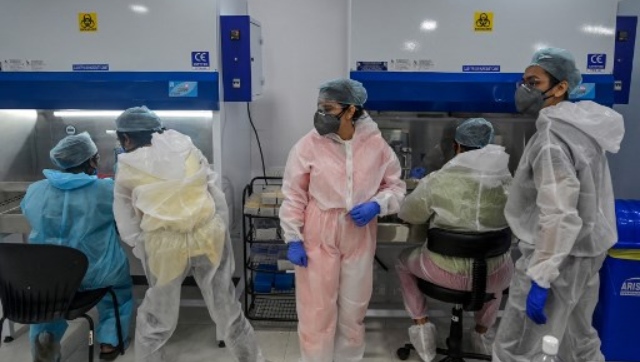A new study published in the journal Neurology says that the SARS-CoV-2 virus is protean in its manifestations. The word protean means versatile or capable of doing many things. Since the beginning of the pandemic, everything that we have come to learn about COVID-19 affirms this description of the disease. Not only does it cause a plethora of symptoms from fever and cough to loss of sense of smell and shortness of breath but it also leads to many complications in patients that increase their risk of death. COVID-19 and the brain The study in Neurology, conducted by researchers based at the Montefiore Health System and Albert Einstein College of Medicine, USA, explains that it’s well known now that COVID-19 affects every organ system in the body and many studies have attempted to highlight the involvement of the brain and the nervous system. For example, an older study published in Neurology in October 2020 explained that the low oxygen levels or hypoxia associated with COVID-19 cause brain damage and neurological injuries. A more recent study in the Journal of Clinical Immunology and Immunotherapy suggests that the neuropathogenic processes involved in COVID-19 can cause delirium to be one of the early symptoms of the disease, especially in aged patients. Apart from hypoxia, neuronal inflammation and toxicity are also considered to play a role in this neuropathogenesis of COVID-19. Brain fog, memory problems and an altered state of mind have been found not only in patients suffering from COVID-19 but also in those recovering from the disease. COVID-19, neurological problems and mortality It was not yet known if patients with pre-existing neurological syndromes or neurological manifestations along with COVID-19 infection have any increased risks of death while being hospitalised. This is what the new study in Neurology explores. The study collected data on 4,711 patients with COVID-19 infection admitted to New York City’s Montefiore Health System during a six-week period in March and April 2020. Of these patients, 581 (12 percent) had pre-existing neurological conditions with enough concerns that warranted proper neuro-imaging on admission. These patients had four patterns of neurological manifestations: acute stroke, new or recurrent seizures, confusion and neuro-COVID-19 complex. The presence of these factors at the time of admission were analysed for their potential for causing in-hospital deaths at a later date. The health status and disease progression in these patients was compared to 1,743 COVID-19 patients who had the same age and disease-severity but did not have a history of neurological conditions. Stroke, confusion and risk of death Of the 581 patients, 55 suffered a radiologically confirmed stroke and 258 experienced confusion. The researchers found that the 55 patients who had a stroke had increased odds of mortality compared to those without any neurological problems with a high odds ratio (OR) of 3.1. Similarly, patients with confusion had increased odds of mortality compared to those without neurological problems due to an estimated OR of 1.39. These differences in the odds of mortality between COVID-19 patients with neurological manifestations and those without neurological manifestations are not that drastic but still statistically significant. Based on these findings, the researchers concluded that having a stroke or confusion at the time of admission predicts a significantly higher risk of in-hospital mortality independent of COVID-19 severity. They also suggest that given this increased risk, identifying and treating these patients accordingly may reduce their mortality risk as well as the overall mortality risks associated with COVID-19. For more information, read our article on Neurological symptoms of COVID-19. Health articles in Firstpost are written by myUpchar.com, India’s first and biggest resource for verified medical information. At myUpchar, researchers and journalists work with doctors to bring you information on all things health.
A new study published in the journal Neurology says that the SARS-CoV-2 virus is protean in its manifestations. The word protean means versatile or capable of doing many things. Since the beginning of the pandemic, everything that we have come to learn about COVID-19 affirms this description of the disease
read moreAdvertisement
End of Article


)
)
)
)
)
)
)
)
)